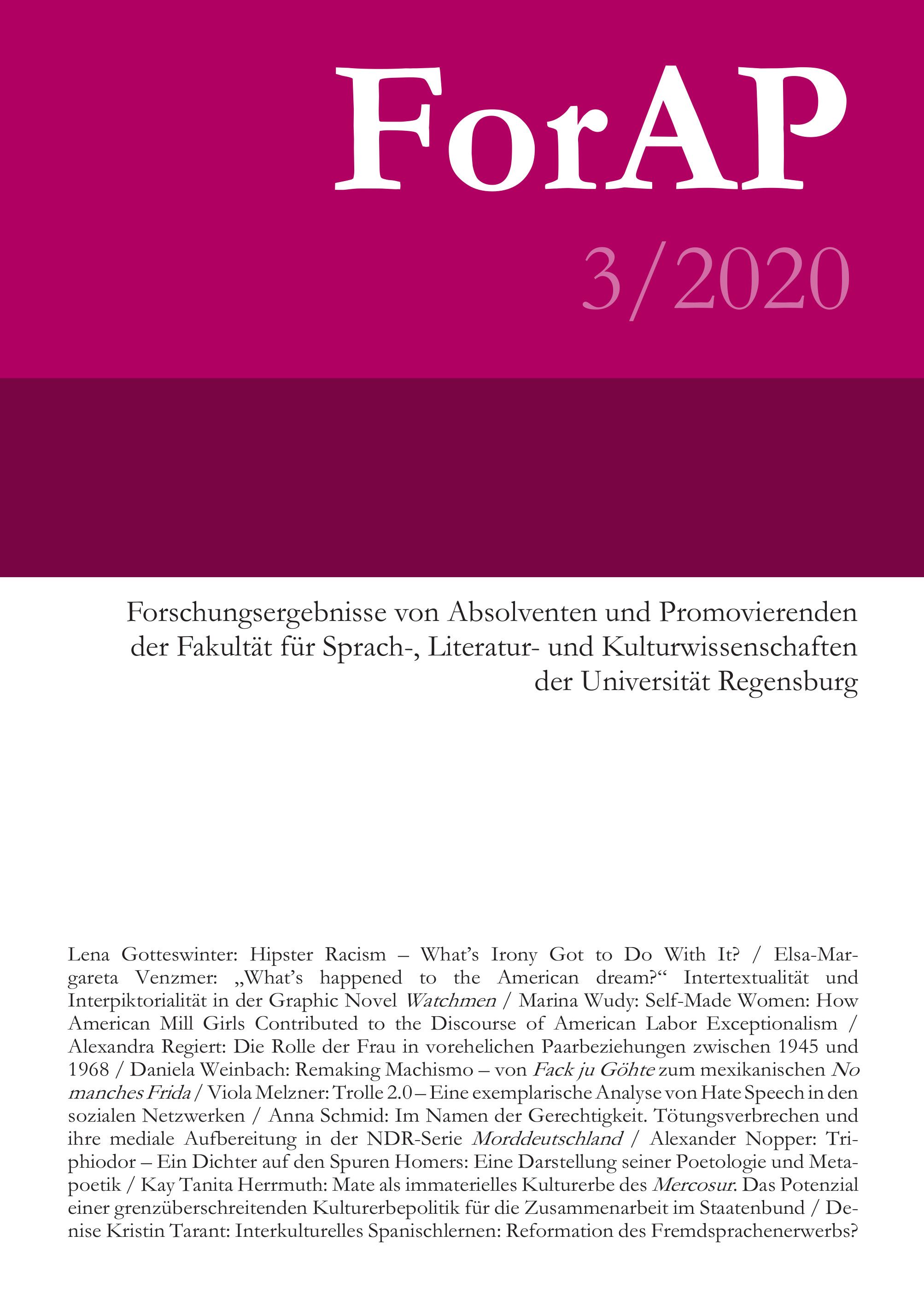Self-Made Women: How American Mill Girls Contributed to the Discourse of American Labor Exceptionalism
DOI:
https://doi.org/10.5283/forap.46Keywords:
American exceptionalism; Lowell mill girls; new labor historyAbstract
The enduring weakness of the American labor movement in comparison to its European counterparts continues to be one of the most intensely discussed and researched questions in the context of (European-)
American Studies. Commonly, scholars answer this puzzle with the concept of American exceptionalism, arguing that a number of supposedly uniquely American cultural traditions led to a situation where the yearning for classbased actions simply was not as strong as in European countries. What is often neglected in this discussion are studies, which evaluate accounts of American workers in terms of whether they actually bought into this ideology of exceptionalism themselves. This study fills this research gap by demonstrating
how Lucy Larcom and Harriet H. Robinson, two mill girls from the early industrial town of Lowell in Massachusetts, constructed a discourse of American exceptionalism in their autobiographies. It is especially notable that their exceptionalist discourse is one based on their experience as part of the first group of working women in the United States.


